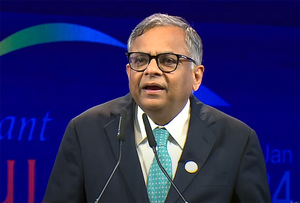Guwahati, Feb 3 (IANS) Researchers at the Indian Institute of Technology Guwahati, in collaboration with leading global institutions, have developed an innovative multi-stage clinical trial method aimed at revolutionising personalised medical care.
This cutting-edge approach adapts treatment plans in real-time based on each patient’s unique responses during trials, enabling highly tailored and effective healthcare solutions.
Researchers, including from Duke-NUS Medical School, the National University of Singapore, Singapore, and the University of Michigan, US, focused on Dynamic Treatment Regimes (DTRs) designed through Sequential Multiple Assignment Randomised Trials (SMARTs).
Together, these frameworks tackle the critical challenge of optimising treatment strategies, a sequence of treatments, for patients with varying responses to therapies over time.
DTRs are advanced decision rules that adapt treatments dynamically as a patient’s condition evolves. For example, if a diabetes patient does not respond well to an initial medication, the DTR might recommend switching drugs or combining therapies.
By incorporating intermediate outcomes, such as changes in blood sugar levels, DTRs move beyond the one-size-fits-all model, tailoring care to individual progress and needs, the team explained in the paper published in the esteemed journal Biometrics.
The experts noted that multi-stage clinical trials are essential for developing effective DTRs, and SMART methodology enables researchers to test various treatment sequences to find the best fit for each patient.
Unlike traditional trials, SMART involves multiple stages of treatment, where patients are reassigned based on their responses to earlier interventions.
Traditional SMART trials assign patients to treatment arms in equal numbers, even when some treatments prove less effective, based on interim data. This often leads to unnecessary treatment failures.
“Adaptive designs like this would encourage more patient participation in clinical trials like SMART. When patients see they are receiving treatments tailored to their needs, they are more likely to stay engaged,” said Dr. Palash Ghosh, Assistant Professor, Dept. Of Mathematics, IIT Guwahati.
Ghosh said the approach also has vast potential for public health interventions, such as tailoring substance abuse recovery plans to individual needs as well as in other chronic diseases.
--IANS
rvt/











